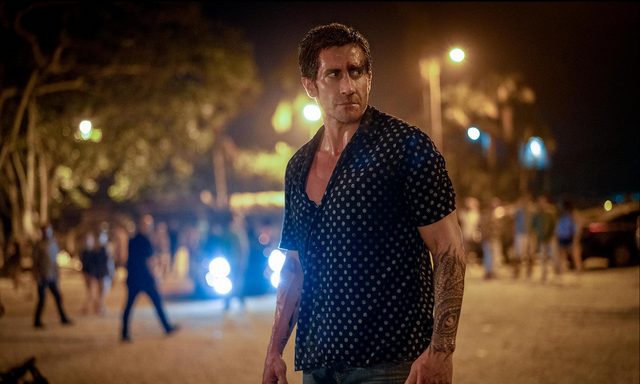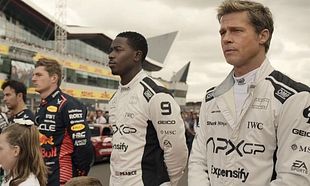Following a UFC career that ends abruptly, Elwood Dalton (Jake Gyllenhaal) is recruited by the owner (Jessica Williams) of a bar in Florida to act as a bouncer. However, when Dalton proves too effective and disrupts the plans of local criminal kingpin Brandt (Billy Magnussen), he decides to hire in a fixer named Knox (Conor McGregor) and sets the stage for a battle between them...
Though it throws everything at the screen, casts Conor McGregor as a coked-up maniac, keeps Jake Gyllenhaal shirtless for most of the time, and ends with a speedboat chase followed by a bone-crunching fight inside the titular road house, you can't help but come away from 'Road House' strangely unmoved by it. The original 1989 movie was released to flat reviews, but gained a life as a genuine cult classic and was screened for late-night movie clubs like Dublin's own Hollywood Babylon and beyond. Put simply, the original 'Road House' had some kind of personality to it. It even had a name, which is neglected in the remake.
No longer the Double Deuce, 'Road House' instead is a bar in Florida that was once frequented by Ernest Hemingway that is coveted by Billy Magnussen, who plays a hypebeast dipshit version of a crime lord, complete with a chintzy yacht and a suit three sizes too small for him. Enter Jake Gyllenhaal's soft-spoken bouncer, who begins his first violent encounter with a group of bikers by asking them if they've got health insurance and where the nearest hospital is. After slapping them around (literally), he then drives them calmly to said hospital and walks off into the night. The scene prior is shot in Doug Liman's kinetic style, with the camera lashed to Gyllenhaal as he spins and weaves around the henchmen before knocking them sideways.
It should feel exciting, vital and tactile yet there's something just unconvincing and ultimately soulless about it all, not to mention it being at least thirty minutes too long. Even when Conor McGregor turns up, this is compounded. For one, he can't act his way out of a paper bag and is completely unconvincing when he's not in a fight scene, careening through about three different accents in a single take. All of this doesn't help things when Jake Gyllenhaal is himself unconvincing as a hardened UFC fighter, even if he is buffed up and throwing shapes as much as he can. When compared with the icy calm of Patrick Swayze, the raucousness of the late great Terry Funk, or the inexplicable presence of Sam Elliott, this version of 'Road House' just comes up short time and time again.
Yes, it may have some funny moments here and there, but it's all so forced when the original felt so effortless - and almost unintentional - in its humour. Doug Liman is a gifted director who made such wonderful hits like 'Edge of Tomorrow', the first 'Bourne' movie, and the criminally underrated 'Go', yet 'Road House' often feels blank and tonally mismatched that it never lands as well as it should. In the end, 'Road House' fights against its own irrelevance and scrapes its way to a draw.










































































